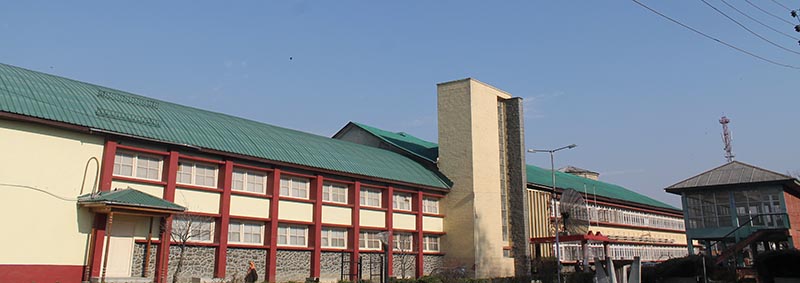Hurriyat Protests SC Decision for Common Medical Exam, CM Under Pressure

SRINAGAR: The Supreme Court’s decision on holding common entrance exam to medical colleges across India sparked a political row Tuesday in Jammu and Kashmir with the Hurriyat accusing the Centre of using its “resources” to “take over” institutions of the state.
A day after the apex court upheld that the admissions to medical colleges will be regulated by the National Eligibility and Entrance Test (NEET) in different states, including Jammu and Kashmir, the Hurriyat chairman Syed Ali Geelani said the ruling is against the “special status” of the state provided under Article 370 of the Indian Constitution.
“Treating J&K at par with other Indian states doesn’t fulfill the parameters of justice. The decision also neglects the special status and sensitivities of the state. The policymakers are employing different resources and machineries to dilute the disputed nature and special status of Jammu and Kashmir,” Geelani said in a statement.
The Mehbooba Mufti led coalition government, which is already embroiled in a similar controversy over a proposal to build ‘Sainik Colony’ in Srinagar and Budgam districts of the state for ex-servicemen, had appointed a battery of lawyers to defend the state’s right under Article 370 to hold separate exam to medical colleges in J&K since education is the state’s prerogative.
“Prima-facie, we do not find any infirmity in the NEET regulation on the ground that it affects the rights of the States or the private institutions. Special provisions for reservation of any category are neither subject matter of the NEET, nor the rights of minority are in any manner affected by the NEET,” an apex bench headed by Justice Anil R Dave ruled on Monday.
The order caught the state government on the back foot with the opposition National Conference accusing Peoples Democratic Party of “implementing the plans of the RSS”, the ideological mentor of PDP’s coalition partner, BJP, to erode the special status of the state.
The J&K government spokesperson, Naeem Akhtar, however said during an interaction with reporters on Tuesday that the apex court’s ruling is an “interim order” whose "permanence for the state will be subject to the outcome of main petition" in the Supreme Court which will be heard in July.
He said although the NEET will govern the process of holding entrance tests, the matter of reservation and admissions to the medical colleges of Jammu and Kashmir will be subject to state laws and only state subjects will be eligible for admission.
On Sainik Colony row, Akhtar indicated that the state government has nearly discarded the proposal, “We have conveyed to them (Rajya Sainik Board which floated the proposal) that due to scarcity of land, the plan can’t be executed. He said the process of building a separate colony for ex-servicemen started in 2011 without naming the then chief minister Omar Abdullah.
At a function to inaugurate a coffee shop in Srinagar, Mehbooba said the process for building 'Sainik Colony' was started under the former chief minister Omar Abdullah's regime.
Meanwhile, moderate Hurriyat chairman, Mirwaiz Umar Farooq, termed the apex court order as an attempt to “make the state institutions” redundant. “It is a politically motivated verdict which exposes the nefarious designs of the PDP-BJP coalition government. The BJP government wants to control all the institutions of the state and now it has a willing partner in J&K to execute its plans,” Mirwaiz said.



